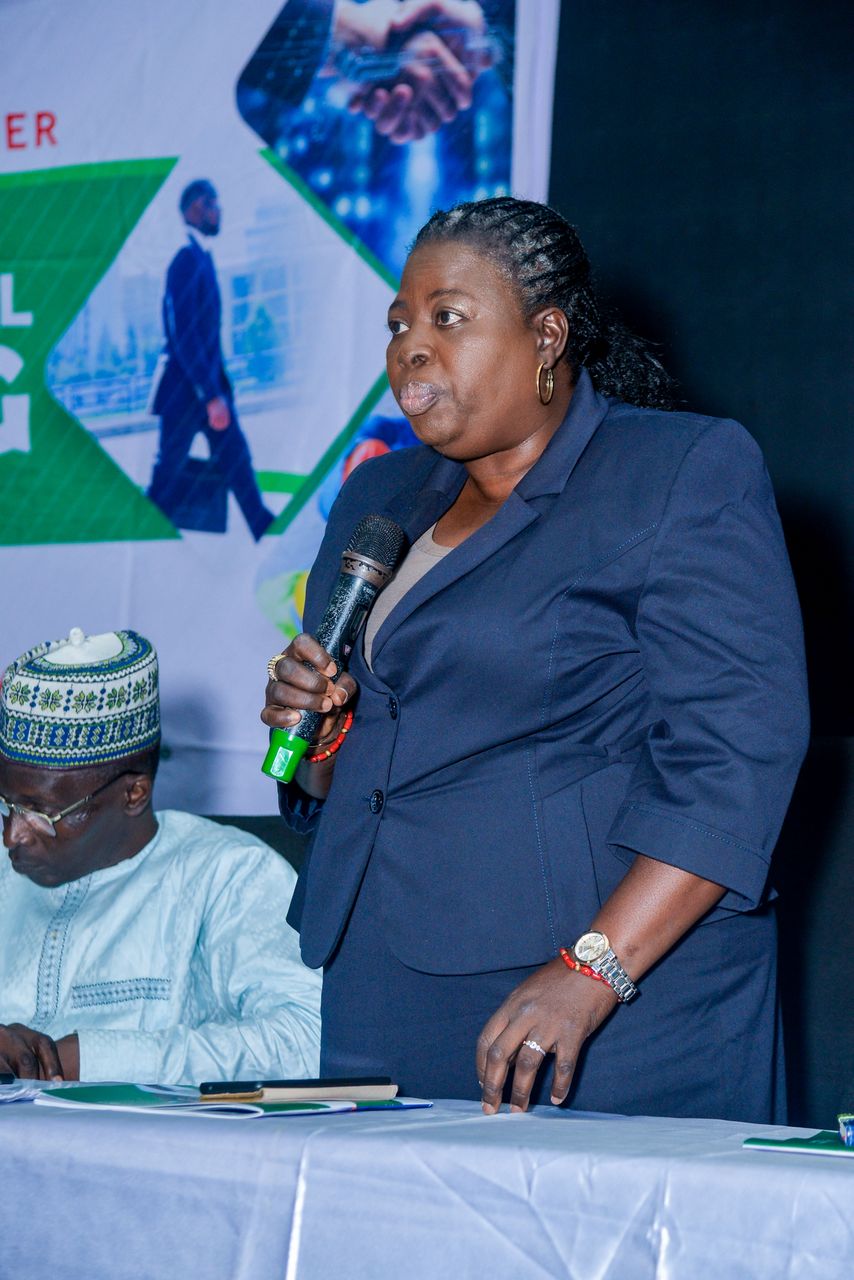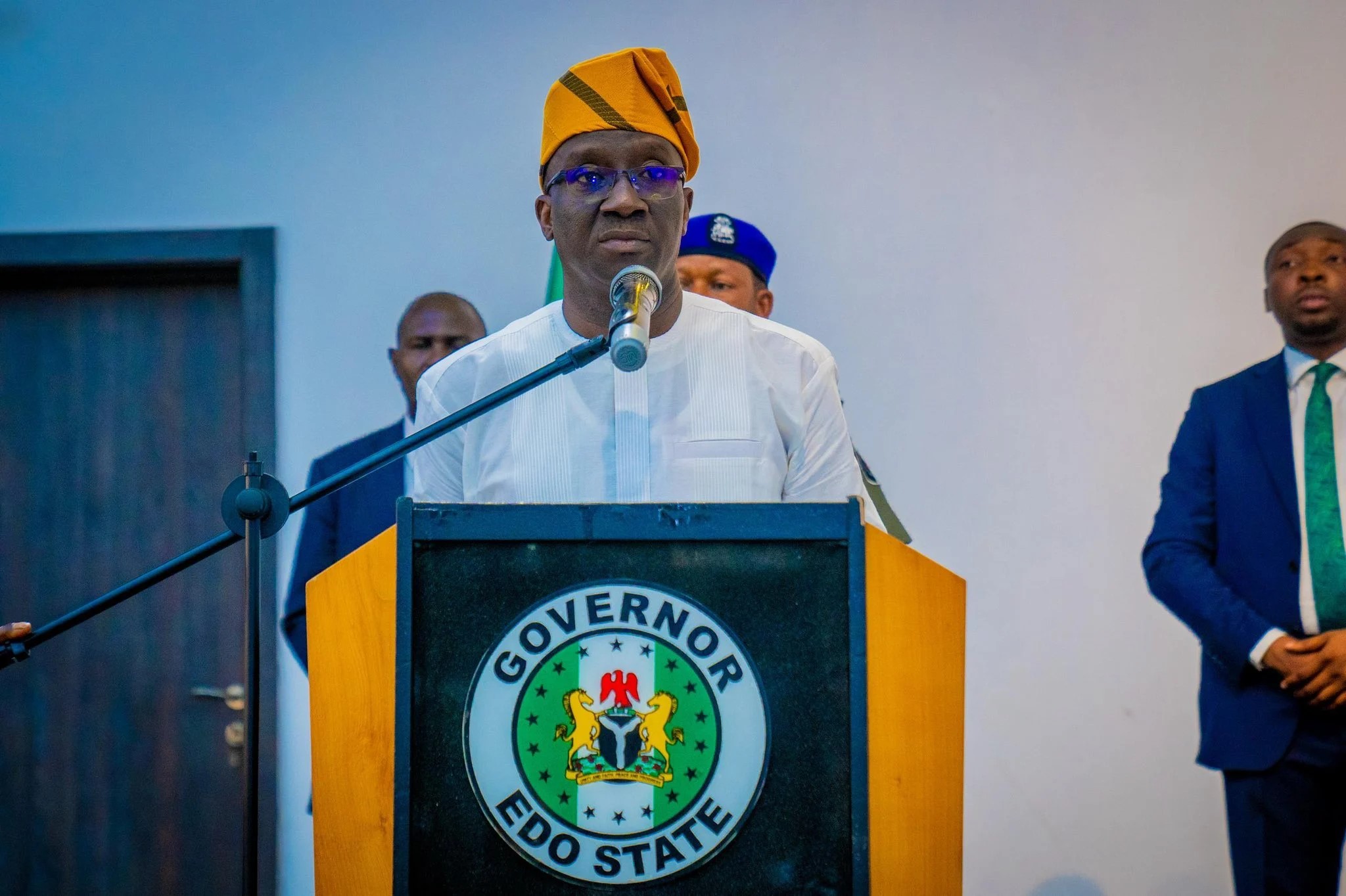
Comrade Agnes Funmi Sessi is the Chairperson of the Nigeria Labour Congress (NLC), Lagos State Council, and a member of the Senior Staff Association of Nigerian Universities (SSANU).
Elected first in 2019 and re-elected unopposed in 2023, her tenure has been marked by strong advocacy for workers’ rights, social protection, and fair labour practices. She has championed causes such as eradicating child labour, including casual and informal workers in labour protections, and improving media professionals’ working conditions. She also serves on the Lagos State Social Protection Steering Committee, shaping policies for informal and vulnerable workers.
Good morning, Ma. Can we know your name and what you do?
I am Comrade Agnes Funmi Sessi, the Chairperson of the Nigeria Labour Congress, Lagos State Council.
Are there existing collaborations between labour unions regarding the implementation of national labour guidelines across sectors?
Yes, there has long been collaboration between labour and various stakeholders.
The work of labour is to ensure that workers’ rights are protected and not trampled upon. To achieve this, collaboration is essential—with both government and private sector partners, locally and internationally. That is why the Nigerian Labour Congress and the Federal Government are members of international labour bodies such as the International Labour Organization (ILO)and the International Trade Union Confederation (ITUC), among others. These partnerships help strengthen the protection of workers’ rights.
Recently, I spoke with a young man working in a recycling company who earns less than ₦60,000 a month. How can workers afraid of employer retaliation safely report minimum wage violations?
The law is clear. The Nigerian Labour Act, as affirmed by the Federal Government, sets the national minimum wage at ₦70,000, covering any workplace with 20 or more employees.
Where a business employs fewer than 20 people, it may decide what to pay—but many still comply out of empathy or fairness. No one, for example, would hire a driver and pay below the minimum wage; your safety is in that person’s hands. However, this 20-worker threshold has created a loophole that some employers exploit. Labour unions continue to advocate for protection for all categories of workers, including domestic staff such as nannies and drivers.
Employers should understand that looking after their workers’ welfare benefits them too. A well-treated worker is more loyal and productive.
How is the NLC engaging with non-compliant companies, especially in the informal sector?
We have unions across sectors managing workers’ issues. For example, NUPENG and PENGASSAN in the oil sector, the Maritime Union, the National Union of Food, Beverage and Tobacco Employees, and in education, ASUU, SSANU, and NASU. Each affiliate union engages directly with workers and employers in its sector. The public sector generally poses fewer problems, but in the private sector, casualisation is rampant. Some companies—like those under the Dangote Group—have historically resisted unionisation. We’ve seen disputes in both the oil and food industries. Frankly, if they have nothing to hide, they should not fear unions, which exist to protect workers’ rights. There is now a new law that protects both casual and permanent workers. The Federal Government has recognised that casualisation harms workers, and the Minister of Labour and Productivityhas released a memo confirming that even casual workers can join unions. This is a major victory for Nigerian workers.
Many workers may not know about this new law. How can the NLC raise awareness?
In this digital age, information is everywhere. Workers must also take responsibility to seek knowledge. Through social media, the internet, and union offices, information is easily accessible. Anyone can search online or visit the NLC office to confirm such policies. If locating affiliate unions is difficult, workers can visit the Nigeria Labour Congress office directly.
We are always available to assist any worker in need. Information is the key to freedom, and every worker deserves to know and claim their rights.












